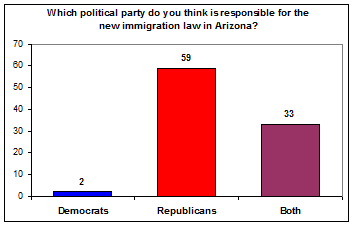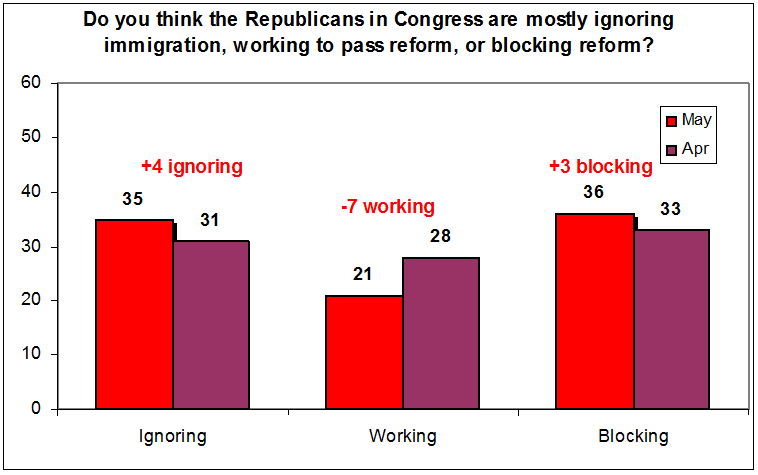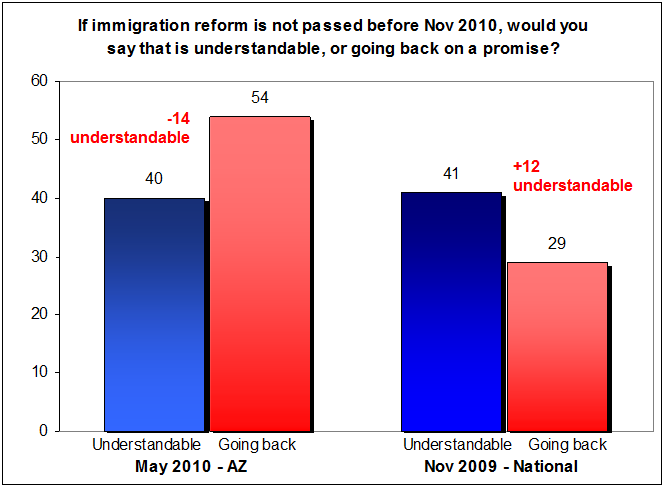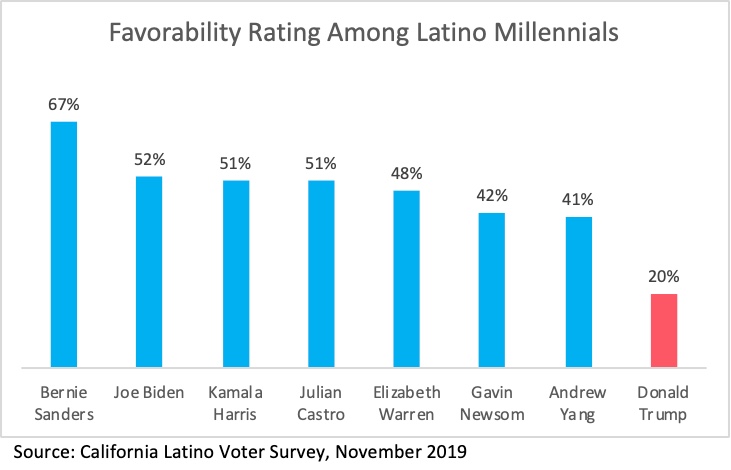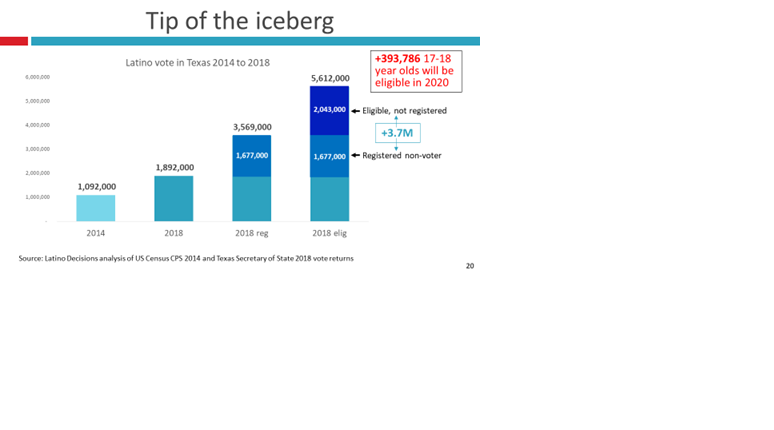Latino Decisions released new results today of a survey of Latino registered voters in Arizona, which shows that immigration is now clearly the top issue of concern for Latino voters in 2010, and that both political parties are suffering a credibility gap on immigration reform. When asked which party is responsible for SB 1070, 59% of Latinos said the Republicans, while 33% said both parties were equally responsible. Further, 66% of Latinos agree that the Democratic party in Arizona did not do enough to block the recent immigration bill.
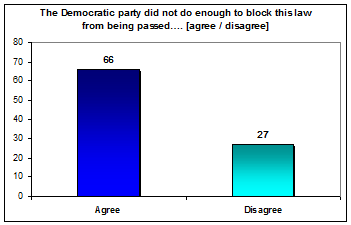
When asked if they thought the political parties in Washington D.C. were working on immigration reform, ignoring immigration reform, or blocking it? More Latino voters believe Democrats are ignoring the issue than working on it, while they believe Republicans are blocking reform. As the Arizona bill has become law, both national political parties have seen their credibility on immigration decline as a result of inaction. Compared to a similar poll of Latino voters in Arizona in the month of April, we now find a considerable drop in positive views towards Democrats and Republicans in Congress just a few short weeks after SB1070 became law.
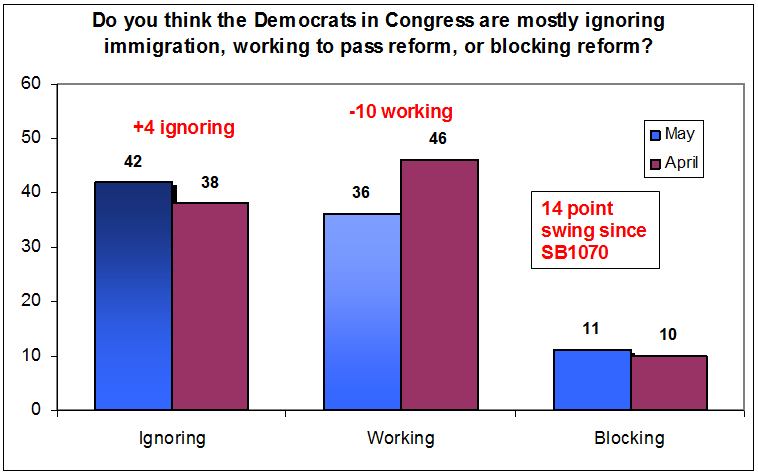
Overwhelmingly, Latino voters in Arizona support national comprehensive immigration reform. 59% say immigration reform is the most important issue, 91% say it is important for Congress to address before the November 2010 election, and 77% support comprehensive reform that includes an opportunity for legalization for undocumented immigrants. While the salience has increased, the survey finds that Obama’s poll numbers are slipping, especially on the issue of immigration, perhaps due to perceived inaction. More Latinos now disapprove of Obama’s handling of immigration in Arizona than approve, and a majority now feel that inaction by Obama is going back on a campaign promise. As the November election draws near, both political parties have a lot of work to do in addressing the immigration issue if they are to engage and mobilize the Latino electorate.
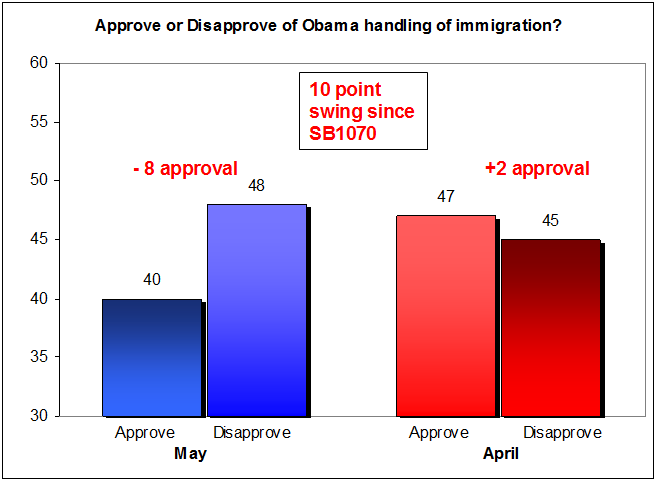
About the Poll
The Arizona Poll was a survey of registered voters who are self-identified as Latino or Hispanic and resident in the state. The poll was commissioned by the National Council of La Raza (NCLR) and Service Employees International Union (SEIU), and conducted in conjunction with political scientists Rudy Espino at Arizona State University, Stephen Nuno at Northern Arizona University, and Sylvia Manzano at Texas A&M University. The sample size of 402 carries a margin-of-error of ±4.9% and was conducted between April 30 and May 5, 2010, and was approximately 17 minutes in length. The sample was drawn randomly from the most recent publicly available list of registered voters in the State of Arizona, screened for Hispanic surnames using the Census Bureau list, and merged with third party data to secure telephone numbers. Voter registration status and Hispanic identification were verified upon contact with respondents, who confirm if they are registered to vote in Arizona and of Hispanic/Latino descent.
Surveying is conducted by fully bilingual interviewers, in English and Spanish at the discretion of the respondent. Respondents are greeted in both languages. The survey instrument is created by Barreto and Segura, in consultation with other political scientists, and translated into Spanish. The survey is administered under the direction of Pacific Market Research, in Renton, WA, and performed using a Computer-Assisted-Telephone-Interviewing (CATI) protocols. CATI programming is performed by Pacific Market Research.
For more information, email Barreto or Segura or call 425-336-7000.

